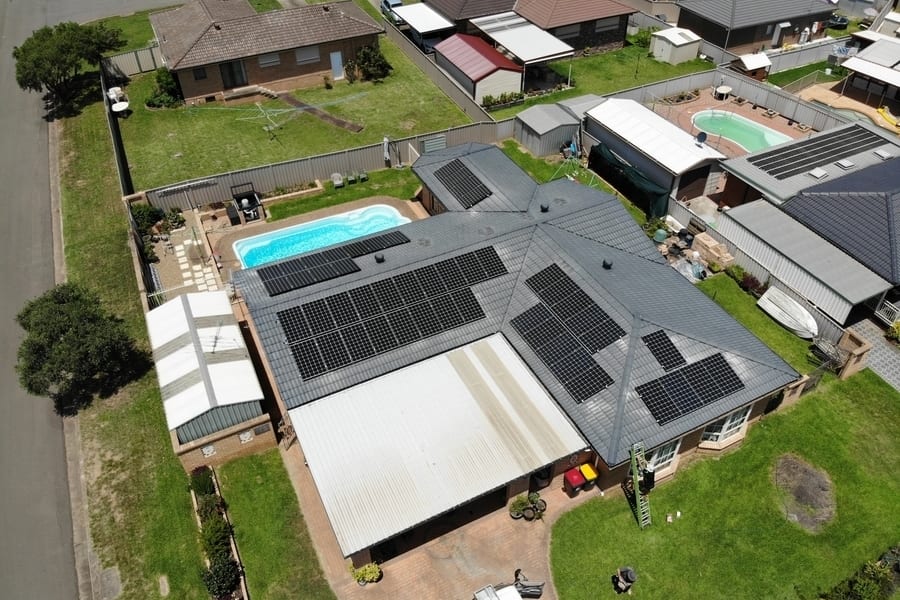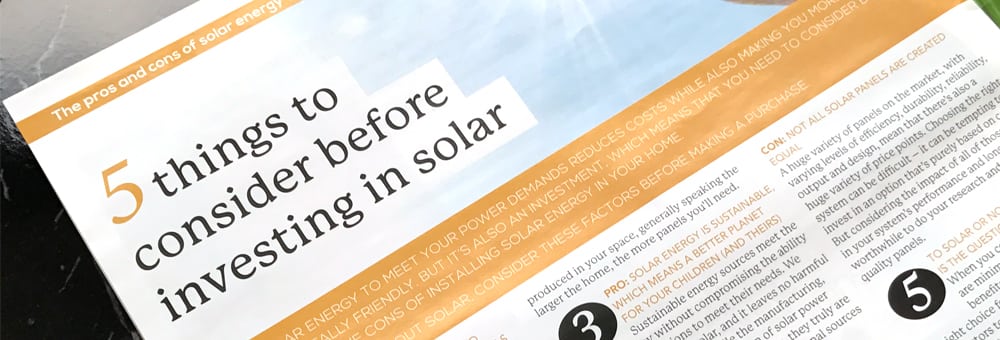Are you worried about solar panel roof fires? Solar panel fires often hit the news, not only because they’re frightening, but also because they’re rare. While solar panel fires have occurred, they’re generally isolated incidents that can be protected against. Solar panel fires generally occur because the installation itself is faulty, or because corners have been cut when purchasing the right materials.
Here’s what you need to know about what causes solar panel roof fires and how they can be avoided.
What Causes a Solar Panel Roof Fire?
Everyone knows that solar panels are energy-efficient and cost-effective. Not only do they save the environment by using a sustainable, renewable resource for energy, but they also save households money through reduced energy costs.
But like any other type of advanced technology, solar panels can be installed incorrectly, mishandled, or manufactured improperly.
There are two major things that can cause a solar panel roof fire:
- Poor installation practices. Solar panels need to be installed properly, as they are electronic devices that are creating energy. Most solar panel roof fires are the consequence of installing the solar panels incorrectly. Either the installation isn’t properly reviewed by an electrician, or the cables are mismanaged and lead to a short.
- Badly manufactured solar panels. Some companies concentrate on profit first, and consequently may not use the best quality solar panels. It’s important to look into the types of solar panels you’re having installed, as well as the company you’re working with. A reputable company is going to use the best quality solar panels available.
In short, if a high quality solar panel is installed correctly, a solar panel roof fire isn’t something that you should worry about. A solar panel installation that has been properly inspected and installed is going to be completely safe.
Protecting Yourself from a Solar Panel Roof Fire
Using trusted solar installers is the most important factor when you’re installing solar panels. Only untrustworthy solar panel installers will use badly made solar panels, or install them incorrectly. A reputable solar panel installer will install well-manufactured, safe panels, and will do so in compliance with the installation best practices.
In 2018, South Australian citizens were warned that at least one company was performing non-compliant solar panel installations, which could be dangerous and potentially catch fire. It was unknown how many citizens could ultimately be impacted, but it was expected to number in the hundreds.
The danger related to these solar panels had nothing to do with the solar panels themselves, but instead due to the non-compliant work the solar panel company was doing. Particularly, the work was not being checked and inspected by a licensed electrician as it should have been.
Many of the solar panels in businesses and residences across Australia were found to have potential issues with wiring or had not been properly inspected after installation. This is something that a trustworthy installer can protect against.
Those with incorrect solar system installations frequently notice that the installation is dispersing far more heat than it should — so there are also indicating factors that homeowners and business owners may notice before a fire ever takes place.
Even so, solar house fires are rare, and substandard solar systems are rarely discovered. Solar systems are occasionally inspected by regulators to determine how many have been installed incorrectly, with about 3.4% of systems potentially being installed in a non-compliant fashion.
Solar Panels Are Perfectly Safe, As Long As They’re Installed Properly
Ultimately, anything that conducts electricity has to be installed properly and inspected by a licensed electrician. If a solar panel installer does not have a licensed electrician available, they are likely cutting corners on the installation and the installation will be non-compliant. A homeowner can also always opt to have their solar panel installation inspected separately to verify that it is safe and correct.
Are you interested in solar panels? Fire incidents are few and far between, and as mentioned, they can be safely avoided by using a trustworthy solar partner. Speaking with a solar company, getting a quote, and finding out more about the installation process can help put you at ease.
Contact E-Smart Solar for qualified solar power installations.







